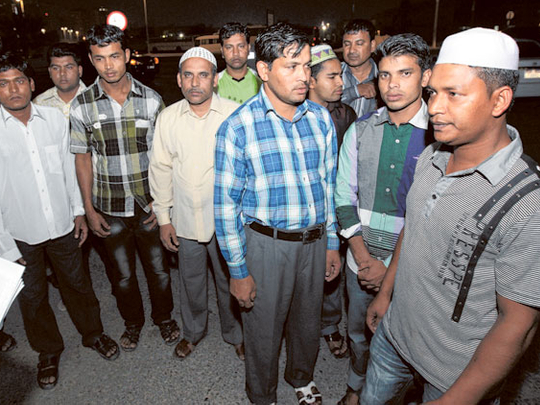
Abu Dhabi:
When asked to accompany his cousin’s body to Bangladesh, Hamidur Rahman was initially worried about consoling the family but later he was totally confused about explaining to them why he could not open the coffin.
“How can I tell my family members they can’t have a last look at his body? How can I tell them to believe that this box contains my cousin but I can’t open it for them?” asked a perplexed Hamidur Rahman at the funeral prayers for his brother in Abu Dhabi on Monday evening.
Rahman told Gulf News he did not know how to reveal that the body of his brother, Mohammad Nurul Alam, was disfigured beyond recognition as a part of his head and body parts below the waist were missing.
“As advised by medical officials, we told him not to open the coffin after reaching home,”said Mohammad Shahadath Hussain, Charge d’ affairs at the Bangladeshi Embassy. He said a ring on the finger helped identify Alam’s body and this was later confirmed by a DNA test.
Alam was one of the 19 Bangladeshi workers killed in the crash in Al Ain on February 4. He was buried in his village in Chittagong district yesterday afternoon, said Mohammad Bilal, 42, his paternal uncle.
“I did not ask him whether the coffin was opened before burial; I did not have the strength to ask such things today,” Bilal said yesterday (Tuesday).
Alam was the sole breadwinner for his family comprising his 28-year-old wife, 10-year-old son and daughters aged 12 and seven. His father and mother are no more. An elder brother and three sisters are married and live separately with their families.
Alam was earning about Dh 1,800 a month and regularly sending money home. “Now the children’s education is at stake. We will see what we can do for them although we are not rich and have our own problems,” the uncle said.
Ten months back he joined his four cousins and an uncle in Abu Dhabi. He was working in Oman for three years but he left due to a visa problem and joined an Abu Dhabi company, which transferred him to Al Ain, the uncle said.
“We used to meet often and he enjoyed his time here with us. We have many friends from the our village here, apart from cousins,” Bilal said. “We all will miss him a lot,” he said.










